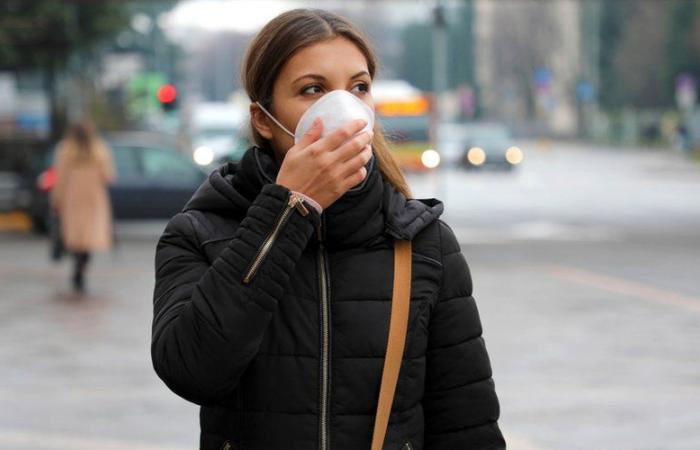Exposure to fine particles may be associated with an increased risk of persistent symptoms of Covid-19. This is the conclusion of a Spanish study published in the journal Environmental Health Perspectives.
Fatigue, shortness of breath, cognitive disorders, etc. which persist for months after the initial infection. This is how long Covid manifests itself, a complex and heterogeneous condition. In fact, its true extent remains uncertain (millions of people are affected worldwide) and its risk factors are not well understood either.
“We have already found that exposure to air pollution is linked to a higher risk of severe Covid-19“, notes Manolis Kogevinas, researcher at the Institute of Global Health in Barcelona. “But there are very few studies on the link between long Covid and the environment.”
With his team, they followed more than 2,800 adults aged 40 to 65, via the COVICAT* cohort. Three online questionnaires, administered in 2020, 2021 and 2023, made it possible to collect data on Covid-19 infections, vaccination status, health status and sociodemographic data of participants.
The researchers also estimated each individual’s residential exposure to various environmental factors, including noise, fine particles or night light.
Fine particles causing serious cases
The results indicate that one in four people who contracted Covid-19 developed persistent symptoms for at least three months, and 5% of them continued to suffer from it for two years or more.
Women, people with a lower level of education, those suffering from chronic illnesses and those who suffered from a severe form of Covid-19 were at increased risk of long Covid.
On the other hand, vaccination proved protective, with only 15% of vaccinated participants developing long Covid, compared to 46% of the unvaccinated.
The study thus highlighted a link between exposure to fine particles (PM2.5 and PM10) and the risk of long Covid. A risk that turned out to be proportional. As for other environmental factors (noise, night light, etc.), they do not seem to have any impact on the development of long Covid.
According to the researchers, “ air pollution is probably not a direct cause of long Covid, but it could increase the severity of the initial infection, which in turn would increase the risk of long Covid“.
*COVICAT is a Covid-19-based cohort designed to characterize the health impact of the pandemic on the population of Catalonia, Spain.






